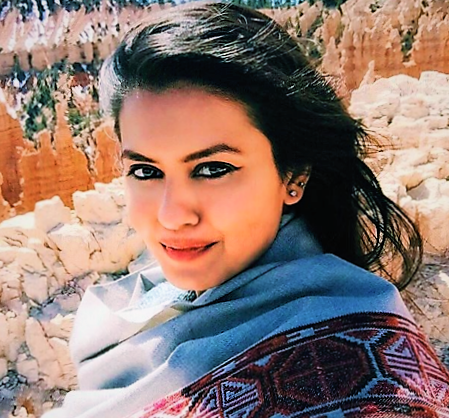Develop innovative strategies to address inequality around
the world

Assess patterns of disparities and social justice through an interdisciplinary lens
The UCLA International Development Summer Institute (IDSI) is a three-week, intensive program for high school students passionate about developing innovative strategies to address some of the most critical issues the world is facing today.
This program engages students with debates around the widening patterns of disparities of wealth, power, privilege, and access to social justice—as well as the policies, interventions, and forms of citizen engagement intended to address them—both between and within the countries of the Global South and North. Utilizing Los Angeles, a microcosm of the developing world, as a living laboratory, this program offers students a unique opportunity to study, analyze, and critically assess the social, political and economic forces that have shaped inequality in the modern world through an interdisciplinary lens.
Through rigorous coursework, guided discussions and debates, an immersive project incubator lab, and workshops led by experts, students will be trained to develop policy memos and design interventions that are economically, environmentally, and culturally sustainable.
International Development Summer Institute Program Overview
This course offers students the opportunity to study, analyze, and critically assess the social, political and economic forces that, throughout history, have shaped inequality in the modern world through an interdisciplinary lens. The central objective is to engage students with debates around the widening patterns of disparities of wealth, power, privilege, and access to social justice—as well as the policies, interventions, and forms of citizen engagement intended to address them—both between and within the countries of the Global South and North.
The UCLA International Development Summer Institute is offered under the guidance of the International Institute, which serves as the focal point for international research and teaching at UCLA. Through its multidisciplinary centers and programs dedicated to the study of world regions and global issues, this program fosters learning about and active participation in the contemporary world.
Application deadline: June 13, 2025 | Enrollment deadline: June 20, 2025
Applications are reviewed and admission to the program is granted on a rolling basis starting February 15th. Applying at your earliest convenience, prior to June 1st, is highly recommended.
The program has application requirements for admission. Eligible applicants who successfully submit all requirements will be reviewed and notified via email of an admission decision within 3 weeks.
Applicants are required to provide the following during the online registration process:
- An unofficial transcript from grade 9 to present reflecting a cumulative GPA of 3.2 or higher
- If your school transcript utilizes a different grading system, please submit your transcript as is. If available, please attach a translation/equivalency guide.
- INTERNATIONAL STUDENTS: If you are an international student, a transcript refers to your complete secondary academic record. To learn more about converting your grades into a US-based GPA, please click here.
- If your school has a translation/equivalency guide, please also include it with your transcript. If you do not have a translation/equivalency guide, please still submit your most up-to-date transcript as is for staff to review.
- Value statement: At the time of registration, ALL applicants will be prompted to submit a few short sentences reflecting on their pursuit of participation in a UCLA Precollege Summer Institute. Please note that students are strongly discouraged from relying on ChatGpt/AI tools for their application responses and are encouraged to submit original and authentic answers.
- Short essay response: In less than 250 words, please state which United Nations Sustainable Development Goal (SDG) you are most interested in addressing during the institute and why.
- Short video response: Record a 2-3 minute video answering the following question: Where is a place you have never been, but would like to visit, and why? Upload the video and provide the link in the appropriate section of the application.
For participants of the International Development Summer Institute, the first week of the program will be conducted virtually (online). All meeting times will take place in Pacific Daylight Time (PDT), unless otherwise noted on program schedule and syllabus. Participants must log-in to virtual sessions at the times indicated on the program schedule.
Living in on-campus housing during the second two weeks of the program is mandatory (June 29th – July 12th). Housing is not available for the first week of the program.
Residential programs are ONLY available to students who will be 17 years of age or older by June 23, 2025. NO EXECPTIONS are made to this eligibility requirement.
All residential precollege programs also feature scheduled non-curricular evening and weekend activities that all students are expected to participate in. The nature of these scheduled activities is at the sole discretion of the individual academic department offering the program, and are not operated by UCLA Summer Sessions. To learn more about when your selected program will host such activities, please consult the schedules for each program, or contact the department in question directly: anjum@international.ucla.edu
Most of our residential precollege programs will hold check-in on the Sunday before the start of the program between 4-6pm, and hold check-out the Saturday after the final day of class at 11am. Please contact the department in question directly to confirm check-in and check-out times: anjum@international.ucla.edu
For more information on UCLA housing precollege programs, please see the Housing for Minors page.
Coursework
International Development Studies 1; 5 units
Grading
Students will receive a letter grade upon completion. See University Credit, Grades and Transcripts for more information about academic credit.
In order to successfully complete the program, students may not have more than 2 excused or unexcused absences.
UCLA Summer Sessions Summer Scholars Support
Qualified students attending grades 9th – 11th in Spring 2025 in the state of California may be eligible for Summer Scholars Support, a need- and merit-based scholarship offered by the UCLA Summer Sessions Office. Students must be 15 years old by the first day of Summer Sessions 2025 on June 23rd in order to participate in a Precollege Summer Institute and/or apply for Summer Scholars Support. A limited number of full and partial scholarships are available to support enrollment in SCIP/eSCIP, one Summer Course, or a Precollege Summer Institute.
Summer 2025 deadline to apply: March 15.
Program Dates: June 23, 2025 – July 12, 2025
Program Type: Hybrid (Virtual & Residential)
Program Eligibility: 11th-12th grade in Spring 2025*
Application deadline: June 13, 2025
Enrollment deadline: June 20, 2025
*All participants must be at least 17 years of age by the first day of Summer Sessions 2025 on June 23rd, no exceptions allowed.
The schedule and syllabus are subject to change. Enrolled students will be given updated materials closer to the program start date.
Fees and Payment Info
The program fee includes the unit fees for the UCLA coursework offered as part of the program and thus varies by UC student status. The program fee also includes the cost of UCLA Housing (for residential programs). In addition to the program fee, students are assessed other campus and administrative fees during the summer. This is a summary of fees that commonly apply to the selected student type.
Actual tuition and fees are subject to change by the University of California. Visit the fees, payment, and financial aid section for important disclaimer, as well as more details on fees, payment instructions, and information on delinquency, refunds, and financial aid.
Meet your Faculty and Instructors
Erica Anjum
Program DirectorErica Anjum directs the UCLA African Studies research center. She teaches courses in International Development in the UCLA International Institute and in Urban and Regional Planning in the UC Berkeley College of Environment Design. Her background includes multidisciplinary training and professional experience in the visual arts, STEM, philosophy, policy, planning, and regional and international development. Her current international projects focus on developing sustainable infrastructure to increase access to water and other basic needs in low-income countries and on addressing the needs of people, particularly women and girls, living in refugee camps in Africa, the Middle East, and South and South East Asia. Anjum’s current U.S. projects focus on increasing resiliency in vulnerable communities facing natural disasters particularly wildfires in California; hurricanes in Hawaii, New Orleans, and Puerto Rico.

Joseph Wright
Program Assistant DirectorJoseph Wright’s research focuses on several aspects of education in developing and emergency contexts including public health education, micro-finance and entrepreneurship education, and technology in education. He has a particular focus on the issue of gender equity. He also has a research interest in comparative religious education. Joseph received his BS from Brigham Young University, MSc from Oxford University, MPH from UCLA, PhD in Education from UCLA and has worked for USAID, UNESCO, and various NGOs in Africa and the Middle East.
International Development Summer Institute FAQ
For the first week of the program, students will participate online in an entirely virtual format, with the flexibility to attend from anywhere with internet access. The second two weeks of the program will take place in-person. Students will participate in person at UCLA, experiencing all that our campus has to offer during their summer program.
NOTE: All course meeting times are in Pacific Daylight Time (PDT). If completing the program virtually in a different time zone, please make sure to account for the time difference. The program schedule is subject to change.
- Marginalized communities in the U.S.
- Latin American Case Studies: Mexico, Brazil, Ecuador, Argentina
- European Case Studies: Bosnia, Romania, Greece, Germany, France, Ukraine, Russia
- Asian Case Studies: China, South Korea, Japan, India, Bangladesh
- African Case Studies: Botswana, South Africa, Ethiopia, Sudan, Uganda
- Middle Eastern Case Studies: Iran, Iraq, Jordan, Dubai
- Critical reading skills of college-level texts from diverse fields and formats: law, public health, UN reports, theoretical texts, etc.
- Advanced writing skills for short essays, policy memos, proposals
- Workshops on developing proposals for research, social entrepreneurship business models, grants, etc.
- Presentation skills: how to present a proposal for global policy forums to potential investors
Familiarity with macroeconomic foundational principles and terms (GDP) is helpful but not needed to participate in the program.
Yes. The program includes a Project Incubator Lab (Rapid Prototyping), site visits/fieldwork, guest lectures, and workshops.
Required materials: Laptop with camera/Zoom capabilities, phone (with camera), pen/pencil, paper and/or notebook (anything that helps you take notes).
Recommended materials: Camera and art supplies (sketchbook, pencils, or watercolors) if you already own these materials. It is not necessary to purchase them for successful participation in the institute.
Still have questions? Check out the general Summer Institutes FAQ.

